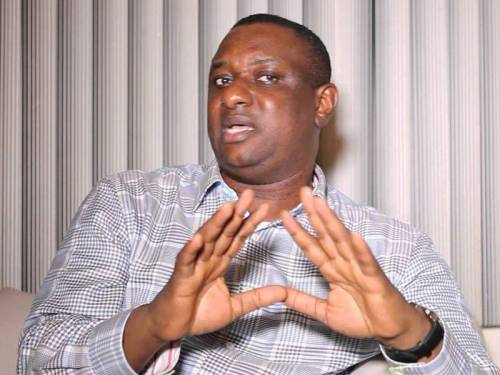
NIGERIA is emerging slowly from the COVID-19 pandemic lockdown with a lot on its plate. Another pressing issue is the mounting joblessness in the ranks of its workforce. Undoubtedly, the pandemic and the shrinking oil income have aggravated the high unemployment. Since March, the economic lockdown to contain the spread of the virus has cost millions of jobs nationwide. In recognition of this, the Federal Government has launched the Special Public Works programme being coordinated by the labour ministry. The SWP, the National Directorate of Employment says, is one of its four core programmes. It seeks to identify and exploit employment opportunities that abound in the public works sector by organising the skilled, semi-skilled and unskilled persons that are unemployed to carry out utility, environmental, infrastructure development and sanitation works.
If properly implemented, the SPW could serve as a temporary relief for unskilled labourers and give a facelift to Nigeria’s dirty environment, but there are fears it could be marred by politics and corruption. Essentially, the programme is geared towards hiring 774,000 persons in all the local government areas of the country from October to December on a monthly salary of N20,000. Each of the 774 LGAs is entitled to 1,000 employees, who will clear drainage, repair roads, direct traffic and clean the environment. Unfortunately, the hope that the SPW offers the downtrodden could be short-lived.
But before its official inauguration, the programme has already become embroiled in political bickering. The Minister of State for Labour, Employment and Productivity, Festus Keyamo, who is in charge, is engaged in a very bitter spat with the National Assembly over the SPW’s modality. Lawmakers are complaining that Keyamo did not carry them along in the implementation of the scheme and later suspended it. Keyamo argued that the lawmakers had no power to give directives to the executive under Section 88 of the 1999 Constitution. He is right.
On Wednesday, the National Assembly met on the issue again in reaction to the directive of the President, Major General Muhammadu Buhari (retd.), that Keyamo should go ahead with the scheme. The executive should ignore the NASS. The lawmakers’ request is a euphemism to control the levers to corner, allocate or distribute public resources. In this case, it pertains to a minister or party chief getting more slots than a lawmaker does in the project’s execution. This storm is needless. The decent manner for all the parties is to accomplish this programme transparently by focusing on the neediest in society.
This should be a temporary way to create jobs. Realistically, Nigeria needs far more than the SPW could ever offer its army of jobless citizens. At various times, economists and the government see the unemployment figures aptly as a time bomb. The situation has deteriorated steadily over the past years, especially after recession hit the economy in 2016. With Nigeria’s population hitting the 200-million mark, the uncontrolled explosion in population is another element. As of first quarter 2020, the National Bureau of Statistics gave an unemployment rate of 21.3 per cent and put underemployment at 20.21 per cent. That is alarming, but the unemployment rate for the youth is far worse.
Pre-COVID-19, Labour Minister, Chris Ngige, had projected that unemployment would jump to 33.5 per cent in 2020 on the back of sluggish growth. As the lockdown bites harder, joblessness is blowing out of proportion, save for a few insulated sectors like telecoms and the oil industry. A survey by the NBS distressingly found that the commerce, services and agriculture sectors recorded the highest number of layoffs. The NBS said that COVID-19 has rendered 42 per cent of workers jobless. In June, the World Food Programme said that the pandemic could cause 13 million Nigerian jobs, stretching into 2021. That is mild as Vice-President Yemi Osinbajo admits that the government envisages 39.4 million job losses by year-end.
In this scenario, small and medium-sized enterprises, the lifeblood of the economy and jobs, are hard hit. They account for 96 per cent of businesses and 84 per cent of jobs (in comparison to 53 per cent of jobs in the United States, 60 per cent in South Africa, and 65 per cent in Europe), contributing nearly half of the GDP in the past five years.
In response, the Central Bank of Nigeria intervened with a N1.15 trillion COVID-19 stimulus package, with reduced interest rates to push the economy back to life. During this period, the Federal Government has borrowed $3 billion from the IMF, targeted at revitalising the comatose power sector. This seems to be a long-term measure. As oil income fluctuated, the central government reassessed the 2020 budget, but with no significant reduction in recurrent costs, the impact of the review is subject to conjecture.
The Buhari regime should focus more on the critical areas of the economy in urgent need of attention, particularly electricity. Nigeria fares woefully here, unable to power its industries and homes with generation oscillating between 3,000 megawatts and 5,000MW. The ease of doing business is a concern. Although the country improved by 15 places to 131 out of 190 in the 2020 World Bank rankings, not much has changed in the business milieu: goods are still late in clearing at the seaports.
The political economy stands as the worst debacle. For the states to contribute and compete economically and create jobs, the Federal Government has to implement a federal fiscal system, where each state would thrive in its area of comparative advantage. Simultaneously, the Federal Government should privatise the critical sectors of the economy, especially downstream oil and steel. It should target a repeal of the Railways Act 1955 to liberalise that high-job capacity sector, while getting manufacturers back to production with innovative policies.
END

Be the first to comment